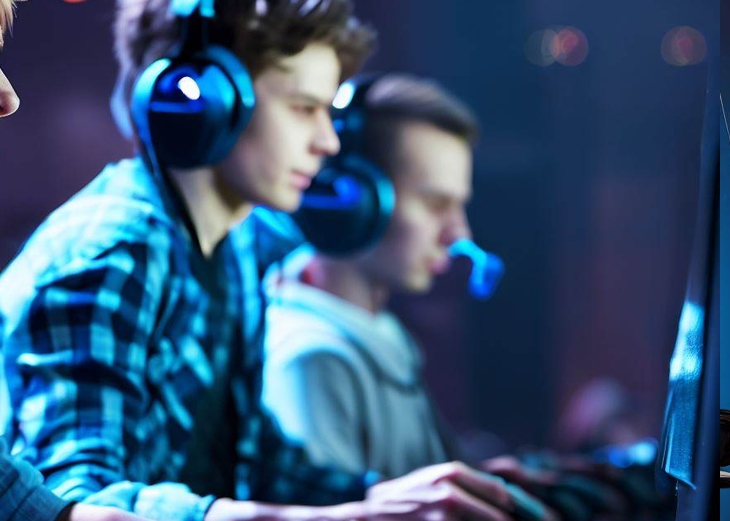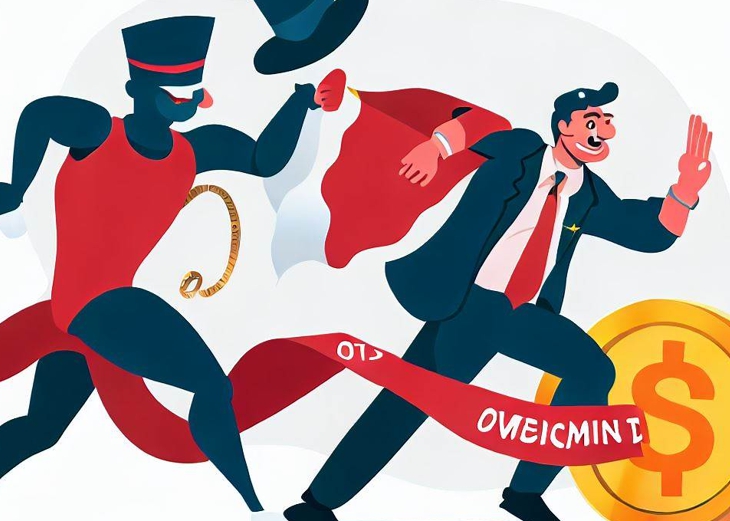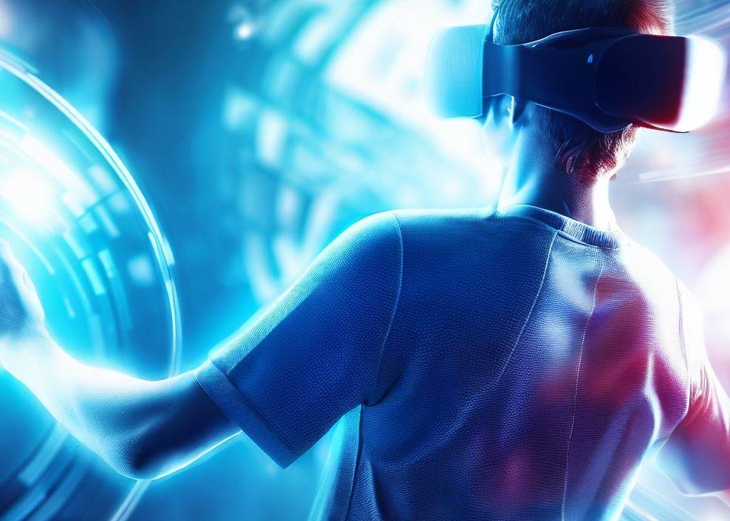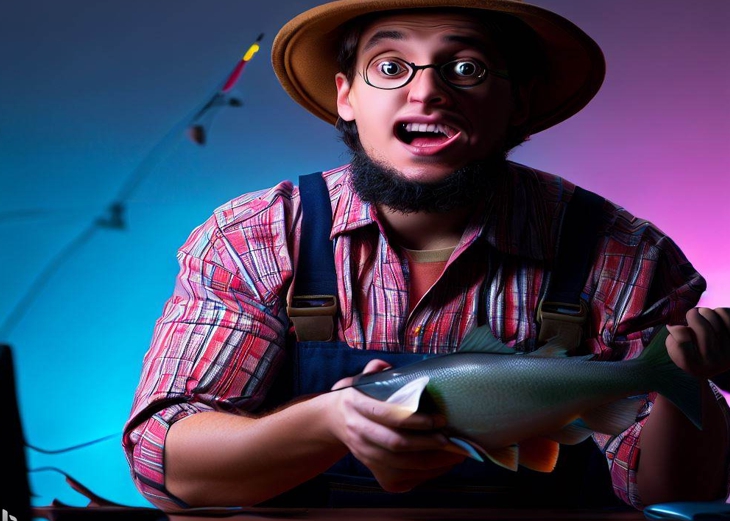At first we can say that one has nothing to do with the other and at the same time has something in common between these points, because we have the same inspiration for our origin, the same means of action, but different ends. This is to say just a few initial points that unite us, but never separate us or create barriers.
It is very important to discern between electronic sports and electronic games. The former is related to a range of areas, rights and duties in the formation of the citizen, while the latter is linked to only a certain and very specific area of citizen law, which even but not separately, leads us to other areas of commercial paths that in no way infer in the formation of the citizen, but which are perfectly legitimate and necessary while within this mentioned area, that is, the commercial one.
Sport in Brazil, the institutional one with the purpose of educating the citizen and imbued with public policies, was created in 1937, by the institution of the Physical Education division, which was hierarchically subordinated to the Ministry of Education and Culture. And that says a lot about what we are dealing with in this article. Over the years and the practice of sport in various categories, and the engagement of the citizen in these practices that at first were for entertainment, but which over time had a greater impact on social inclusion, and education in addition to improving the quality of life, sport became a Social Category, an instrument for the formation of the citizen and had its role more specified when the Extraordinary Ministry of State was created of Sport in 1995, where our football athlete, Pelé, became the highest authority, as Minister of Sport. Even Law 9615/98, the year in which Pelé leaves the Ministry of Sports, most commonly has his name replaced by "Pelé Law".
In 1998, the Ministry of Sports and Tourism was created, and there was the Secretariat of Sport of the Ministry of Education, an agency that provided technical support to the Ministry of Sport and which had been detached from this role in 1995 when INDESP – National Institute for the Development of Sport was created, which in turn was linked to the new Ministry of Sport and Tourism. until the year 1999. In 2000, INDESP is extinguished and the National Secretary of Sport is created.
In 2003 the Education and Sports portfolios are separated and the ones become independent, logically the National Secretariat of Sport is subordinated to the Ministry of Sports. It is important to note that at that time the Ministry of Sport had exactly the following secretariats: National Secretariat of High Performance Sports (to work in international competitions and the Olympic movement – SNEAR) / National Secretary of Sport, Education, Leisure and Social Inclusion (SNELIS) / National Secretariat of Football and Defense of Fans' Rights (SNFDT) and Brazilian Doping Control Authority (ABCD). All directly subordinated to the Ministry of Sports.
It should be noted that here are already the indications and civic and constitutional values intrinsic to the management format of Brazilian sport and on the path of citizen formation. There is in NO way any relationship between the commercial or the Commercial Secretariat of Sports related to the promotion and use of the same in the general or specific context of any use of national sport. This is only entitled to the promotion and commercial deliberations developed naturally in any sports category, in any area or sport, and even with regard to education, culture and any other areas that make up our lives. Something natural and due.
The difference is that here we are talking about public policies, here we talk about them for the FORMATION OF THE CITIZEN!
Em 2019 o Ministério do Esporte é transformado em Secretaria Especial do Esporte, subordinada ao Ministério da Cidadania, ainda maior a indicação e compreensão de que o DESPORTO é sim, inequívoca e pluralmente, ferramenta essencial e necessária na formação do cidadão, daí inclusive o nome dessa pasta.
Ainda dentro do núcleo hierárquico do desporto brasileiro, como administradores nacionais de cada categoria temos senão as Confederações, cujas filiadas, as Federações Estaduais, fazem papel de coordenar, fomentar e criar políticas públicas juntos a comunidade, e aplica-las conforme regimentos e estatutos previamente e devidamente aprovados e em conformidade com Leis e Regulamentações advindas do órgão maior do esporte brasileiro, a saber a Secretaria Especial do Esporte e ao Ministério da Cidadania e respectivamente as Secretarias de Esportes Estaduais e Municipais. Ainda que essa entidades sejam juridicamente constituídas como entidades de direito PRIVADO, elas devem e precisam trabalhar em conjunto com os órgãos governamentais devido a sua característica de fomento e aplicação de políticas públicas para o desporte de suas respectivas categorias, e em paralelo a isso temos ainda o Movimento Olímpico, que também é regido pela hierarquia Confederativa de representação administrativa, ou seja, trabalha com uma internacional que por sua vez, reconhece e legitima uma nacional que foi devidamente registrada e legitimada nacionalmente pelo seu órgão nacional do desporto, e assim desenvolvem o trabalho do fomento olímpico, com participação necessária e totalmente voltada aos atletas de alto rendimento.
Essas entidades são necessárias para que os atletas tenham além dos deveres como cidadão e desportista, os seus direitos garantidos e com isso possam atuar profissionalmente no mercado desportivo. Esse profissionalismo é dado sendo certo que ambos, o atleta profissional e o atleta não profissional, estão devidamente reguladas pela Lei nº 9.615/98 e alterações, lei essa conhecida como Lei Pelé. Tal diferenciação há que ser feita para fins de esclarecer-se o que efetivamente caracteriza um atleta profissional e um atleta não profissional, em contraponto ao que diz o artigo 3º da CLT. Aqui faremos um aparte, e estamos aos poucos adentrando o tema desse artigo, pois esse ponto em que chegamos requer uma certa atenção especial. Os atletas não profissionais estão de todo regidos pela extravagância de Leis, e os atletas profissionais são regidos pela Lei do Desporto salvo quando não se enquadrem nessa e portanto estarão regidos pela CLT, inclusive temos que ter cuidado especial ao Artigo 3º Consolidado fazendo contraponto e distinção para que regras do desporto não se confundam com subordinação jurídica empregatícia.
Transcrevamos os artigos que regem essa característica:
--------------
os incisos I e II do parágrafo único do artigo 3º da Lei nº 9.615/98 alterado pela Lei nº 9.981/2000, que assim descreve o desporto em nosso País, em textual:
Artigo 3º - O desporto pode ser reconhecido em qualquer das seguintes manifestações:
I - ...................................................................................
II - ...................................................................................
III - ..................................................................................
Parágrafo Único - O desporto de rendimento pode ser organizado e praticado:
I - de modo profissional, caracterizado pela remuneração pactuada em contrato formal de trabalho entre o atleta e a entidade de pratica desportiva;
II - de modo não profissional, identificado pela liberdade de pratica e pela inexistência de contrato de trabalho, sendo permitido o recebimento de incentivos materiais e de patrocínio.
---------------
Assim sendo a caracterização de relação de emprego a existência de contrato formal de trabalho, que caracterizam um atleta profissional, devem existir, caso contrário, será um atleta não profissional, conforme inclusive é corroborado pelo artigo 28 da Lei 9615/98, pois, o fato de não haver contrato formal de trabalho, registrado na respectiva federação ou confederação impede o reconhecimento do atleta profissional, nos termos legais. Mesmo tendo claro também a descrição de artigo que versa sobre o direito a livre associação a entidades diversas do desporto, por parte do praticante inclusive e especialmente.
Então aqui já temos respondida a sempre presente questão: devemos ter Confederação e Federação? Somente para usar os termos Legais, sim! E a subordinação e administração dos atletas, de sua valoração e de sua carreira é intrinsicamente e legalmente ligadas a de suas respectivas Federações e Confederações, caso contrário não há sequer a possibilidade de ele ser tido como “profissional” pois não haverá registro e acompanhamentos contratuais pelas devidas entidades de administração e entidade de pratica, uma vez que em nosso sistema até mesmo as entidades de prática devem existir pela devido registro de sua existência não somente pelo meio Civil mas dentro do que rege os regulamentos e estatutos de cada entidade de administração das respectivas áreas desportivas a que essa entidade de pratica estará subordinada.
Contudo e para efeitos do esporte eletrônico nacional do Brasil, cabe também ao atleta sua total e primordial liberdade de pratica tanto do desporto eletrônico institucional (profissional por Legalidade Desportiva e Trabalhista), quanto da pratica do Desporto Eletrônico Privado, realizado através de eventos competitivos elaborados por operadores de esportes eletrônicos e também pelas próprias desenvolvedoras/publicadoras, dentre outros tantos promotores de eventos privados. Cabe aqui ressaltar que todos tem total direito, cada qual em sua devida categoria, de promover o esporte eletrônico da maneira que melhor lhe prouver, desde que pactuado a concordância desses meios e maneiras, pelos atletas.
Somente há distinção entre o esporte eletrônico institucional, o dito profissional e que requer sim a “federação” do atleta e de sua entidade de prática, e o esporte eletrônico privado. Esse último em concordância com o atleta, será realizado pontualmente e por evento, ou como desejarem, mas para sua entidade de prática (clube e/ou time) caberá o devido registro dos mesmo e de si próprios nas entidades de administração estaduais e nacional. Independente serão os eventos e seus momentos, não cabendo a utilização de Lei Desportiva para eventos privados, esses então regidos pelas Lei Cíveis e Trabalhistas vigentes.
Com relação ainda ao artigo 3º da CLT é fato notório de que a relação do “atleta profissional” ou qualquer nomenclatura que deseje utilizar é e deverá ser enquadrado como empregado e portanto, e dentro do que requer esse reconhecimento ele é sim profissional. Contudo é dúbia a certeza da Liberdade de Pratica, disposta no Inciso II do Artigo 3º da Lei Pelé (9615/98), pois uma vez que o atleta tem vínculo com um Clube e/ou Time, ele de certo representará somente aquela entidade de prática não podendo atuar em nome de outra diferente estando vinculado legalmente. Aqui já é certo de que não interpretamos o Artigo 3º Consolidado de forma restritiva, como alguns jurista o interpretam, pois, a Lei Pelé versa sobre o desporto e não somente o Futebol, e ponto!
Portanto é mais que notório a necessidade, em nosso sistema nacional de esportes (ou sistema nacional do desporto) que as entidades de administração (confederações e federações) sempre serão necessárias para dar a característica final de profissionalização do atleta, e que sua falta caracteriza somente e somente a prática privada, educacional ou de entretenimento.
Também nesse ponto no Inciso II do paragrafo único do Artigo 3º dessa Lei 9615/98 é notório o direito de ter para si, caso seja enquadrado como atleta não profissional, o recebimento privado de material de prática e de patrocínio. Dúvida maior já não há depois de analise tanto da CLT quanto da Lei Pelé 9615/98 (Lei do Desporto), da total necessidade das entidades de administração e entidades de pratica e também fica claro que há total liberdade dos eventos privados bem como de seus promotores e operadores, sejam eles empresas especializadas nesses eventos, sejam empresas diversas e em especial as desenvolvedoras e/ou publicadoras das franquias utilizadas para o esporte eletrônico.
Aqui entramos em outro ponto: disse no parágrafo acima sobre “franquias utilizadas”, sim exatamente essa específica denominação: utilização.
Utilizando como exemplo o futebol, temos o desporto em si, isto é a pratica que se utiliza de ferramentas físicas e objetos para que o conceito de pratica seja transposto a realidade, ou seja é necessário a bola, o campo, a chuteira, proteções de canelas entre outros artigos, para a pratica do conceito esportivo chamado futebol, cujo nascimento veio de criação de regras e meios de se executar esse conceito. Da mesma maneira o conceito esporte eletrônico, cuja prática se estabelece pelas mesmas necessidades quando da pratica e da competição, são necessárias para que o conceito desse esporte em meio eletrônico seja realizado, independentemente de quem as crie, mas em especial das que regulamentam a pratica desportiva institucional além das regras das franquias propriamente ditas e que não sejam confundidas com regulamentos, e temos portanto ferramentas e dispositivos como computadores, consoles, controles, teclados, telas de proteção, monitores e em especial os jogos (ou franquias). O esporte eletrônico é a prática desportiva de competição entre pessoas utilizando para tanto, artifícios eletrônicos locais ou por meio de internet, conectando um ou mais competidores e praticantes desse esporte, se valendo de franquias diversas, que por sua vez estão em modos e plataformas diversos.
Os jogos propriamente ditos, ou franquias, foram idealizados como atividade fim de trazer, logica e certamente, para os que o desenvolvem e os que os publicam: lucro; e para os que os utilizavam: entretenimento. Com os formatos mais organizados e coordenados de competições utilizando essa franquias, e tendo em vista o alto crescimento de retorno de investimento de determinados operadores de esportes eletrônicos em seus eventos privados, nasceu então o interesse das próprias desenvolvedoras e/ou publicadoras de terem para si seus próprios eventos, dos quais temos atualmente atenção e dedicação que beiram o perfeccionismo real e de fato. São competições de extrema qualidade de operação e coordenação e com incríveis premiações para os competidores, dando ainda mais possibilidades de negócios diversificados além da margem maior em vendagem de suas franquias.
Isso é de direito e porque não dizer de total DEVER de cada desenvolvedora e/ou publicadora, atingir esse patamar de sucesso, com relação a esses eventos, além das vendagens de suas franquias crescerem. Com isso o investimento em novas franquias, e melhorias das já existentes, são maiores e teremos para nós ainda mais recursos, possibilidades e desafios no esporte eletrônico. O sucesso comercial das desenvolvedoras é de extrema necessidade! Também ninguém em sã consciência funda uma empresa cujo fim não seja exatamente o de trazer dividendos, lucros e sucesso para o próprio empreendimento.
Contudo a razão inicial e final dessas desenvolvedoras e/ou publicadoras é senão a do comércio de seus produtos e de seus possíveis serviços. De maneira alguma se encaixam na promoção do desporto como ferramenta de formação do cidadão, o desporto eletrônico institucional, cuja finalidade fim é das entidades de prática e das entidades de administração do esporte, nesse caso o eletrônico. Caso fosse esse o caso, já o teriam realizado há muitos anos, da maneira com que aqui no Brasil, esse fomento é feito pelas próprias entidades de administração do esporte. E não é atividade fim, nem mesmo serviço inerente e de dever, da entidade de prática ou entidade de administração a comercialização de franquias, senão da utilização delas como meio de execução do esporte eletrônico, de maneira que agregue valores educacionais, culturais e de prática desportiva em seus vários níveis na formação do cidadão. É também inerente a entidade de administração e de prática garantir ao praticante, cujo caráter é de profissional uma vez federado, seus direitos e deveres enquanto atleta e certamente cidadão, sem, contudo, inferir em qualquer atividade privada de desenvolvedoras, publicadoras, e operadores de eventos de esportes eletrônicos.
Há também ao nosso entender, a diferença inerente não somente a atividade fim, mas também a necessidade fim para o cidadão e na manutenção de categoria desportiva e não na comercial. Ambas podem coexistir de maneira que uma proporcionará o crescimento maior da outra, criando inclusive a quebra de um paradigma existente em categorias desportivas regulares como futebol, basquete dentre outras, cujas entidades de prática estão cada vez mais empobrecidas devido ao modelo secular prejudicial e engessado, visando somente uma categoria de desporto.
Exemplificando: a desenvolvedora terá na entidade de administração um engajamento com sua franquia como nunca antes, primeiro porque determinada franquia pode ser mantida no âmbito da categoria por muito tempo, segundo por ter seus eventos de esportes eletrônico em total normalidade e ainda acontecendo em paralelo ao seu evento privado, independentes mas podendo sim atuar de maneira conjunta, até mesmo criando um vínculo em determinados eventos, agregando valores para ambos os ambientes. Com os eventos de esporte eletrônico institucional acontecendo paralelamente vindos das entidades de administração dessa categoria, dará a essas franquias ainda maior visibilidade, comercio agregando a esses qualidades sociais, educacionais e de pesquisas, sem contar com a valoração Legal do atleta, dos times e dos eventos, mesmo que institucionais, mas refletindo no privado, visto que essas franquias são de propriedade intelectual dessas mesmas desenvolvedoras e/ou publicadoras. Uma não é de maneira alguma impeditiva da outra, pelo contrário, as desenvolvedoras saem ganhando em todas as áreas quando do advindo das entidades de administração de esportes eletrônicos.
Para exemplificar com mais um ponto técnico, outro fator importante aqui no mercado brasileiro é a necessidade de autorização/certificado da Caixa Econômica Federal, inerente ao evento online ou eletrônico da prática do esporte eletrônico advindo das desenvolvedoras e/ou publicadoras, ou mesmo de qualquer entidade comercial privada. O que não acontece com as entidades de administração do esporte eletrônico pois cabe somente a Caixa Econômica Federal (CEF), a coordenação e requisição dessas taxas comerciais as empresas com fins lucrativos ou não, desde que não se enquadrem no desporto. Portanto eventos de desenvolvedoras e/ou publicadoras, e outra empresas privadas que realizarem seus eventos privados, com chancela da entidade de administração, não precisariam em tese, de tal certificação e taxa paga a CEF.
Fora esse ponto muito singular aqui no Brasil referente ao evento de esporte eletrônico, promovido por empresa privada e sua relação com a CEF, há também benefícios no reconhecimento do esporte eletrônico como categoria desportiva regular e regulamentada, após a promulgação da Lei do Esporte Eletrônico (seja ela nacional, e posteriormente estaduais e municipais), por se tratar de esportes outros pontos como isenção de impostos por parte das desenvolvedoras quando fornecem franquias para a pratica institucional do esporte e essas determinadas franquias são escolhidas como oficiais no âmbito nacional institucional do esporte eletrônico, ou mesmo nos insumos como artigos para pratica da categoria, isenção ou melhores condições na comercialização de teclados, monitores, consoles, computadores e demais itens. As possibilidades são infinitas e de certo são maiores que as diferenças que um ou outro lado acreditem existir entre si, e que de pronto já afirmo não existirem. O que há é a falta de informação, de diálogo e de clareza no que um e outro fazem, o que aqui tento explicar como ponto final.
Há também a total compreensão da necessidade de manutenção dos direitos privados das desenvolvedoras e/ou publicadoras, com relação a suas franquias. De certo se requeridos, os pagamentos para utilização dessas franquias devem e serão feitos, visto que o Brasil é país no qual a Lei de Direito Autoral é levada muito a sério, e é um país signatário de vários acordos internacionais de direitos autorais.
Além disso uma entidade de administração tem para si, o dever de criar política públicas contando com as desenvolvedoras e/ou publicadoras, pois que fazem parte da sociedade, e de várias outras áreas, de maneira que uma não infrinja os direitos e área da outra mas que trabalhem em paralelo e com a única intenção que tem para si, em especial a da entidade de administração é a da formação do cidadão, o desenvolvimento humano e de apoiar a geração de emprego e renda com respeito a diversidade.
Ainda segundo a Lei 9615/98 cuja entidade de administração faz parte, temos que o esporte pode ser reconhecido nas seguintes manifestações:
-------------
– Esporte educacional, praticado nos sistemas de ensino e em formas assistemáticas de educação, evitando-se a seletividade, a hipercompetitividade de seus praticantes, com a finalidade de alcançar o desenvolvimento integral do indivíduo e a sua formação para o exercício da cidadania e a prática do lazer;
– Esporte de participação (recreação e lazer), praticado de modo voluntário, compreendendo as modalidades desportivas praticadas com a finalidade de contribuir para a integração dos praticantes na plenitude da vida social, na promoção da saúde e educação e na preservação do meio ambiente;
– Esporte de rendimento, praticado segundo normas gerais da Lei nº 9.615, de 1998, e das regras de prática desportiva, nacionais e internacionais, com a finalidade de obter resultados e integrar pessoas e comunidades do País, e estas com as de outras nações. O desporto de rendimento pode ser organizado e praticado:
a) de modo profissional e
b) de modo não profissional.
--------------
E retornamos então ao que já discutimos em parágrafo anterior nesse mesmo artigo, inclusive da necessidade Legal da presença da entidade de administração dessa categoria. Ainda de acordo com o Ministério do Esporte e o Conselho Nacional do Esporte, a preocupação com o social deve estar, portanto, na escola, na recreação e mesmo no esporte de alto rendimento.
Também cabe aqui citar que 1ª Conferência Nacional do Esporte, como proposta de ação temos, dentre outras pontuadas para o esporte de alto rendimento, categoria na qual aqui no Brasil o esporte eletrônico é enquadrado:
--------------
Garantir que os recursos da Lei Agnelo/Piva sejam destinados também às entidades estaduais e municipais de administração do esporte olímpico, paraolímpico e não-olímpico, bem como às entidades formadoras – clubes e associações – beneficiando também técnicas ou técnicos e atletas para que o Esporte de Base seja contemplado e priorizado.
...
Implementar Centros de Formação, Treinamento, Pesquisa e Excelência esportiva por intermédio de parcerias com Universidades, Forças Armadas e entidades afins, com estrutura especializada para o desenvolvimento de atletas e paraatletas e programas antidrogas, desde a base até o treinamento de alto rendimento. Estas estruturas devem ser dotadas de equipamentos, recursos humanos (médicos, fisioterapeutas e profissionais de Educação Física), recursos científicos e instalações apropriadas, de forma regionalizada e descentralizada em diversos municípios de todos os Estados brasileiros, priorizando a utilização e adequação de espaços ociosos já existentes em entidades esportivas, sem fins lucrativos ou econômicos, instalações militares, escolas etc.
Garantir junto às agências de bacias hidrográficas a destinação de uma porcentagem mínima de 3% dos recursos oriundos da cobrança pelo uso da água potável, existentes nos rios e lagos brasileiros para subsidiar os esportes em geral.
--------------
Portanto as entidades de pratica do desporto eletrônico (clubes e/ou times) devidamente cadastradas nas entidades de administração e as próprias entidades de administração nacionais e estaduais, poderão sim, e não somente o COB, usufruir de recursos financeiros para que se mantenham, nas devidas ações regulamentadas do esporte eletrônico, operacionais e proporcionem crescimento social e certamente o profissional no esporte eletrônico.
Aqui não estamos entrando a fundo no esporte educacional e nem esporte de fomento.
Portanto há sim um modelo a seguir tanto comercial, quanto de negócios, social, cultural e educacional, sem falar no profissional, com relação ao esporte eletrônico, basta que cada um trabalhe em seu determinado setor e que entendam de vez por todas o seu papel perante suas próprias áreas e assumam para si os deveres inerentes a cada papel, bem como usufruam de seus devidos direitos.
Ainda com relação as entidades de pratica e em especial as entidades de administração, elas proporcionam pesquisas científicas de aprimoramento tanto do atleta quanto de ferramentas diversas para o aprimoramento da categoria, com seus núcleos de excelência e saúde, além de estabelecer políticas antidoping (em nosso caso doping químico e doping de software e hardware), e também na manutenção de bons modelos de gestão desportiva, evitando inclusive contratos de trabalhos leoninos que atualmente denigrem a imagem do esporte eletrônico e negativam a atuação isonômica do atleta dentro de clubes e/ou times de esports, muitas vezes em ambientes que são comparáveis a situações de trabalho escravo, além de remunerações totalmente adversas a boa prática comercial dentro do desporto e de maneira alguma garantem uma real e palpável carreira na categoria e menos ainda uma pós carreira, sem falar em contratos de repasse, propriedades de imagem e janelas, e tantos outros aspetos que certamente são regulados pelas entidades de administração de esportes. Novamente aqui lembrando que isso para o âmbito no desporto eletrônico institucional, em nada inferindo ou ingerindo o âmbito do esporte eletrônico privado, em que os clubes e/ou times e seus atletas poderão pertencer concomitantemente, cabendo somente ao privado desejar, e poder estar a ou não dentro da chancela do institucional, podendo então usufruir dos vários pontos positivos geridos e oferecidos por essa categoria, como STJD, Câmara de Resolução de Litígios, Arbitragem e demais benesses todas embasadas e dentro das Leis do Desporto e Leis Cíveis.
In addition, the entity of national administration of electronic sports, has for itself providing the community with projects of social, educational and social integration already available for application, and in fact work is already underway in conjunction with some city halls and states, and with educational entities, in addition to dozens of other projects and actions coming from its various commissions, councils and departments.
The technical, social and educational justifications, apart from those of professional practice are several, all of them favorable to an electronic sports ecosystem on Brazilian soil that would be the envy of the most methodical and eccentric first world country, all it takes is for conversations and practical actions to start in all categories. We have already taken the first step, a long time ago, by the way, and we are moving forward always open to creating a better environment for everyone, especially for electronic sports practitioners and aiming at citizen formation, that is, professional, educational and social life with electronic sports as a tool and means of socioeconomic experience.




